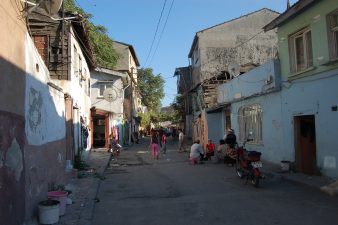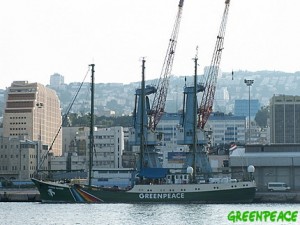 ProGen, a Turkish seed developer and supplier, has specialized in crop varieties that can withstand the hot Mediterranean climate.
ProGen, a Turkish seed developer and supplier, has specialized in crop varieties that can withstand the hot Mediterranean climate.
As climate conditions in European countries increasingly resemble those of their southern neighbors, European farmers are seeking new strains of staple crops that can adjust to the new climate. A pan-European research project, EASTBRED, brought European agronomists together with ProGen to start selecting the new crops and introducing them to fields in central and eastern Europe.
Resistant to extreme weather
Climate change is starting to visibly alter European agriculture.
It’s affecting the atmospheric conditions of Europe, increasing the frequency of intensely cold winters and hot summers throughout the continent. Agricultural pests and diseases from southern Europe and Africa are also spreading north. Plant varieties normally confined to southern Europe are following the trend as well, often replacing other species indigenous to northern Europe.
Although Turkey is facing its own internal agricultural production shortage due to climate change, companies such as ProGen have honed the development of crop varieties that can survive the Mediterranean region’s ecological and weather conditions.
In the EASTBRED project, ProGen researchers crossed central Europe’s best barley and wheat varieties with especially resistant Turkish ones using conventional breeding techniques (no genetic modification, in other words).
Turkey: Source of super-resistant crops for the future?
It will take 2-10 years to get the full results, but ProGen has already joined another European crop breeding research program, GENOWHEAT, with similar goals: reintroducing to European fields especially resistant varieties of wheat that used to be grown widely across the continent but now are only found in Turkey.
ProGen specializes in the research, production, and distribution of cotton, corn, wheat, soy, sunflower and canola seed types, and currently exports to more than 15 countries.
Turkey’s agricultural laws have been conforming more and more to European ones recently. In 2006, Turkish Parliament passed a law forcing all commercial farmers to only use seeds that were tested, registered, and certified by the state. Meanwhile, “high quality” seeds were defined by the state as those with the highest productivity and lowest diversity of products.
Such measures haven’t hampered the work of groups like ProGen, however. The company looks set to become a leader in the effort to prepare European agriculture for increasing climate change.
:: CORDIS
Read more about climate change in Turkey:
Turkey’s Wheat Exports Decline Due To Climate Change, Says Industry Official
UN Launches Climate Change Resilience Project in Balkans, Western Turkey
Plumbing the Mud in This Turkish Lake to Explain Climate Change
Image via ProGen


